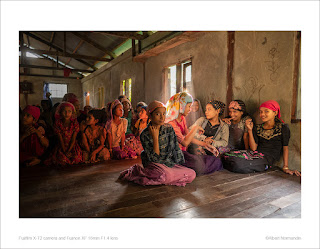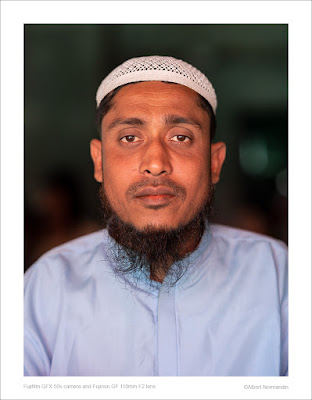The Visit
Flying up the North West coast of Myanmar takes me to the bustling port city of Sittwe, near the border of Bangladesh.
I am here to visit a few of the segregated Bengali villages outside of town. We take a thirty-minute drive to the first village. After discussions with the local leaders, I make arrangements to come back in the early morning before school starts.
This Muslim community of eighteen hundred people are confined to this village. They are not allowed to go to the city and I am sure it is just too dangerous for them.
They grow most of their own food, educate their children, and care for the people. They maintain a self-sufficient village, with little or no support from the outside or the Government. There is no electricity or other services, but somehow they find a way to survive.
Most families have five to ten children. I find a one-hundred-year-old man that has five wives, six children, and 20 grandchildren.
In one classroom, a young teenage girl is directed to bring her small study table over to where I am sitting on the floor. Once in position directly in front of me, she begins to recite the Quran (Koran).
As I listen to her beautiful voice sing the words of belief, which of course I cannot understand, I feel a deep emotion inside of me that I cannot describe. I don’t want to disrespect her recital with my cameras, but I try to capture a few frames. I am stunned and shaken to be honoured with this gift. I will never forget that girl’s voice, like a wonderful song of hope, peace, and dreams.
The next day, I visit another village outside of town. This one has over twenty-five hundred people and the same poor living conditions.
In both villages, I was warmly welcomed and I was not concerned for my safety at all. They were surprised that I would take the time to visit and greatly appreciated my interest in them. They are not accepted or liked in this region, or anywhere else for that matter.
They are to be called Bengali, but really they are Rohingya and Myanmar does not recognize them as citizens, even though they have been here for generations. Sadly, no other countries want them.


















Comments